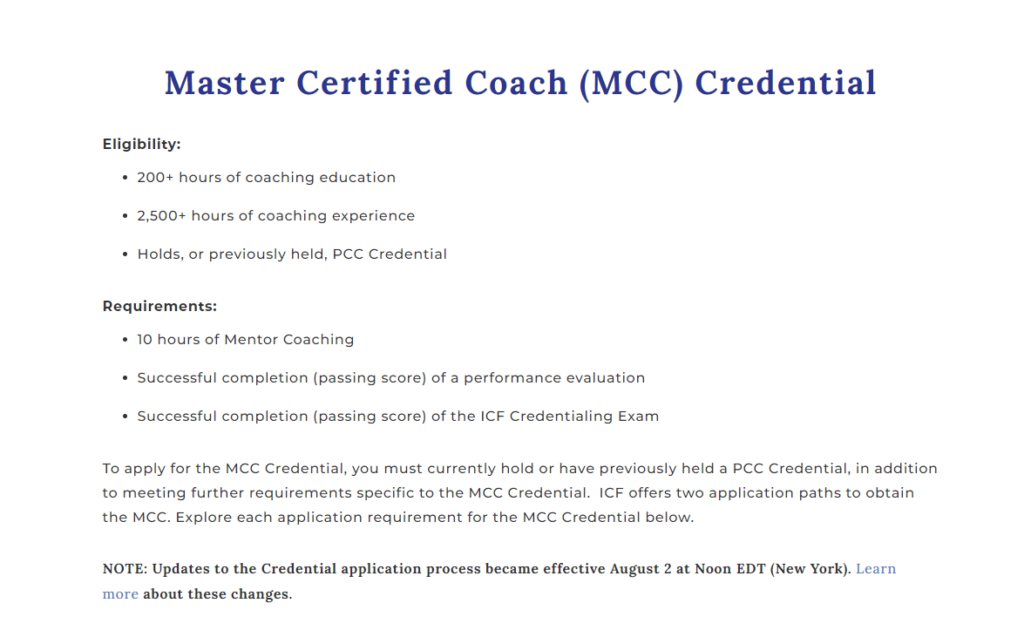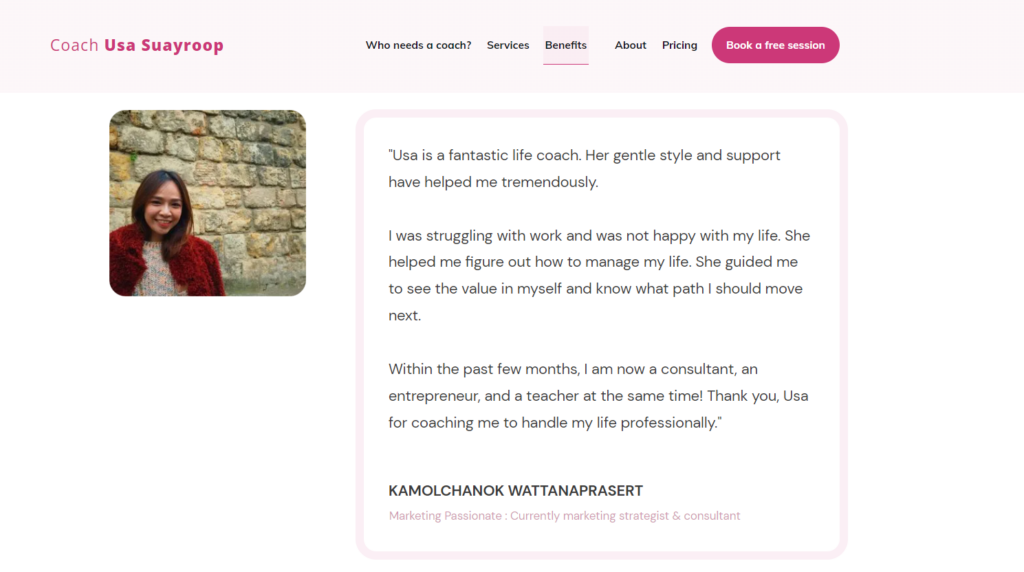Establishing credibility is a vital aspect for life coaches, but how can one truly build and maintain it?
As a life coach, you need to win the confidence of your clients, and that starts with building trust and credibility.
It’s not just about having the right qualifications or experience. It’s about creating a genuine connection with your clients and demonstrating your expertise in a way that resonates with them.
In this blog post we’ll delve into the nuances of credibility and its importance, along with some actionable strategies to help you build and sustain your professional reputation.
Dive in with us as we unpack these concepts further! Keep reading to discover:
- What is credibility?
- Why is credibility important?
- How to establish credibility
What is Credibility?
We’ll begin by defining what we mean by “credibility” and exploring its facets in the context of life coaching.
Credibility means being trusted and believed in. So, you must demonstrate your expertise, dependability, and value to your clients as a life coach to be credible.
But it’s not just about having a degree or certification. You also need to be empathetic and attentive and provide insightful advice.
The components of credibility
When it comes to credibility, several key components play a vital role.
From expertise and experience to reputation and integrity, each element contributes to building trust and confidence in your abilities.
These are the different components of credibility that contribute to your overall professional image:
Competence
Demonstrating competence as a life coach involves showcasing your expertise and knowledge in various coaching techniques.
It’s about having a deep understanding of human behavior, personal development, and effective strategies to help clients overcome challenges and achieve their goals.
Being adaptable and able to tailor your approach to each client’s unique circumstances shows that you have the skills and competence to guide them effectively.
Integrity
Upholding integrity is paramount in building credibility with clients.
This means following ethical standards, treating client confidentiality as sacred, and being completely transparent in all aspects of your business.
You show your clients that they can rely on you to always act in their best interests and maintain the highest level of professionalism.
It’s about being honest and trustworthy and creating a safe and confidential space for your clients to open up and grow.
Evidence
Providing evidence, such as testimonials from satisfied clients and case studies showcasing positive outcomes, allows potential clients to see the real-life impact of your coaching.
These testimonials and case studies serve as social proof! It affirms that you have the knowledge and skills to make a positive difference in people’s lives.
They provide reassurance to clients and contribute to your overall professional image.
Credibility takes time, effort, and consistency to build. But once you’ve established it and are properly maintaining it, it will serve as the foundation for a successful career in life coaching.
Why Is Credibility Important?
Establishing credibility plays an integral part in successful coaching relationships.
As a life coach, credibility is the backbone of your business. Without it, attracting and retaining clients becomes an uphill battle.
So, let’s dive into why establishing credibility should be high on your priority list.
The trust factor
Credibility breeds trust, and trust is paramount in any coaching relationship.
When clients perceive you as credible, they are more likely to open up about their challenges and goals. This level of openness paves the way for effective communication and successful outcomes.
Client confidence
A credible reputation instills confidence in potential clients that they’re making a wise investment by choosing you as their life coach.
What sets you apart from others is assuring potential clients that you have the proficiency, expertise, and practical experience to help them achieve their goals.
Competitive edge
In a crowded market of life coaches, credibility sets you apart from competitors who haven’t put in the effort. It gives potential clients compelling reasons to choose your services over others.
For example, let’s take a look at Luke Charlton, who coaches on ad campaigns and email marketing.
His marketing emails frequently explain specific examples of how he helped a client. Instead of just saying that he got results, he lays out specific actions he took to get there:

He also frequently explains where he got his expertise and how this sets him apart from other coaches.
Keep in mind: people don’t just want something that works; they want it from someone they can trust.
How to Establish Credibility
Credibility creates trust and respect and opens doors to new opportunities.
As a life coach, you need to establish it to attract and retain clients, but earning it doesn’t happen overnight.
To build credibility as a reliable professional, follow these steps that can help expedite the process.
1. Create clear credibility statement examples
You need to tell your clients what you do exactly, what you specialize in, and other things about you that will connect with your audience. Here are some examples of credibility statements:
Sample 1: “With over 10 years of experience in life coaching, I have empowered individuals to overcome challenges, discover their passions, and achieve personal fulfillment. As a certified coach with expertise in mindfulness and positive psychology, I am dedicated to helping clients unlock their true potential and create meaningful lives.”
Notice how the above sample specifies:
- The number of years of experience
- Specific ways they’ve helped people
- The fact they’re certified
Sample 2: “As a life coach, I bring a unique blend of academic knowledge and real-world experience. With a Master’s degree in Psychology and extensive training in coaching methodologies, I provide evidence-based strategies and tailored guidance to help clients navigate life transitions, enhance self-confidence, and cultivate resilience.”
In this example, they show credibility by showcasing:
- Where their knowledge comes from
- College degrees and training
- What types of strategies they use
Both examples are different, but they both establish credibility!
2. Keep educating yourself
Always seek out learning opportunities such as attending lectures, reading literature, and engaging with audio content to stay updated. It will help you become a specialist in the topics that are most relevant to your clients.
You can also get your coaching certification if you don’t have one already!
If you’re already certified, you can aim to get more advanced certifications, such as the Master Certified Coach (MCC) credential from the International Coaching Federation.

Remember, a commitment to ongoing education is crucial in providing the best possible guidance and support to those you serve.
3. Showcase your expertise
Displaying certifications or degrees related to life coaching on your website or social media profiles demonstrates commitment towards honing your craft.
Let people know what you can do by blogging, giving talks, or offering free workshops.
A great example of this showcase of expertise is Jenna Kutcher! Her blog covers a variety of topics, but they’re all related to building her expertise as a life and business coach.

Using this approach will establish you as an authority figure and give potential clients valuable insights into what they can expect from working with you.
4. Maintain professionalism
Your behavior plays a crucial role too.
Always uphold ethical standards, conduct yourself with integrity, and respect client confidentiality no matter what situation comes up!
This shows your dedication to creating a safe and trustworthy environment for your clients.
5. Collect testimonials
Positive feedback from past clients serves as proof of competence in delivering results.
Encourage satisfied clients to share their experiences on social media platforms like LinkedIn, or directly on your website’s testimonials page, and to leave reviews online.
Strong testimonials can be more persuasive than any sales pitch and could potentially attract new clientele.
Just look at this example from coach Usa Suayroop:

Instead of having to believe Usa herself, potential clients can read how Kamolchanok has been guided and supported by her!
6. Publish content regularly
Sharing insightful content, such as blog posts, podcasts, or webinars helps to establish you as an expert in the field while also demonstrating your commitment to providing valuable resources to your audience.
This free content not only helps to educate and inspire others but also serves as a powerful marketing tool. This, in turn, can attract potential clients who resonate with your expertise and approach!
7. Network effectively
No person is an island, and this holds very true in the world of life coaching.
Networking allows you to gain referrals, exchange insights, learn from other professionals in the industry, and collaborate on opportunities for growth and learning.
In the world of life coaching, connecting with others is key to expanding your reach and staying informed about the latest industry trends and practices.
8. Create professional coaching packages
Creating professional coaching packages helps you establish credibility by providing clear structure and transparency in your services.
It demonstrates that you have a systematic approach and well-defined offerings for your clients.
Here’s an example of Natalie Bullen, a sales coach, breaking down how her 1:1 coaching offer works and what people can expect:

It’s easy to see how this breakdown inspires more trust and credibility than a generic phrase about “helping you improve sales.”
When potential clients see that you have organized packages tailored to their specific needs, it instills confidence in your expertise and professionalism.
You can even use Paperbell to create beautiful coaching packages that are ready for purchase to make things easy for you and your clients — every package even comes with its own landing page!
Building credibility is not an overnight process; it requires dedication and effort over time. But with these steps, you’ll be well on your way to becoming a reliable and respected life coach.
FAQs
As a life coach, establishing credibility is essential in building your business and attracting clients. Here are some frequently asked questions about how to establish credibility.
What is a credibility statement?
A credibility statement is all about building trust and showing expertise. It’s like a way to say, “Hey, I know what I’m doing!”
Whether you’re in a professional setting or giving a presentation, it helps create a positive impression and build trust with others. So, it’s important to highlight your qualifications and experience to make people feel confident in your abilities.
How can I gain credibility as a new life coach?
- Create an impressive online presence by having a professional website with testimonials from previous clients.
- Publish blog posts or articles on topics related to coaching on reputable websites or publications.
- Become certified by recognized organizations such as the International Coaching Federation (ICF).
Why is it important for me to be authentic when establishing my credibility?
Clients value authenticity because they want someone who understands their struggles and can relate. Being genuine will help you connect with them better, leading them to trust you more easily.
How can I show my expertise during client interactions?
- Showcase your listening skills by actively engaging with clients during sessions. Ask open-ended questions that allow them to explore their own thoughts, beliefs, and feelings more deeply.
- Demonstrate empathy when appropriate so that clients feel heard and understood without feeling judged or criticized for their experiences or emotions.
Establish Credibility to Boost Trust in Your Coaching Business
Establishing credibility as a life coach is crucial for building trust, attracting clients, and standing out in a competitive industry.
By continuously applying the tips discussed above, you can solidify your credibility and position yourself as a trusted authority!
Building credibility takes time and effort, but it’s worth it as it forms the foundation for a successful and fulfilling career as a life coach.
Need help building trust for potential clients? With Paperbell, running a credible coaching business online has never been easier! Try it for yourself by getting a free account.










